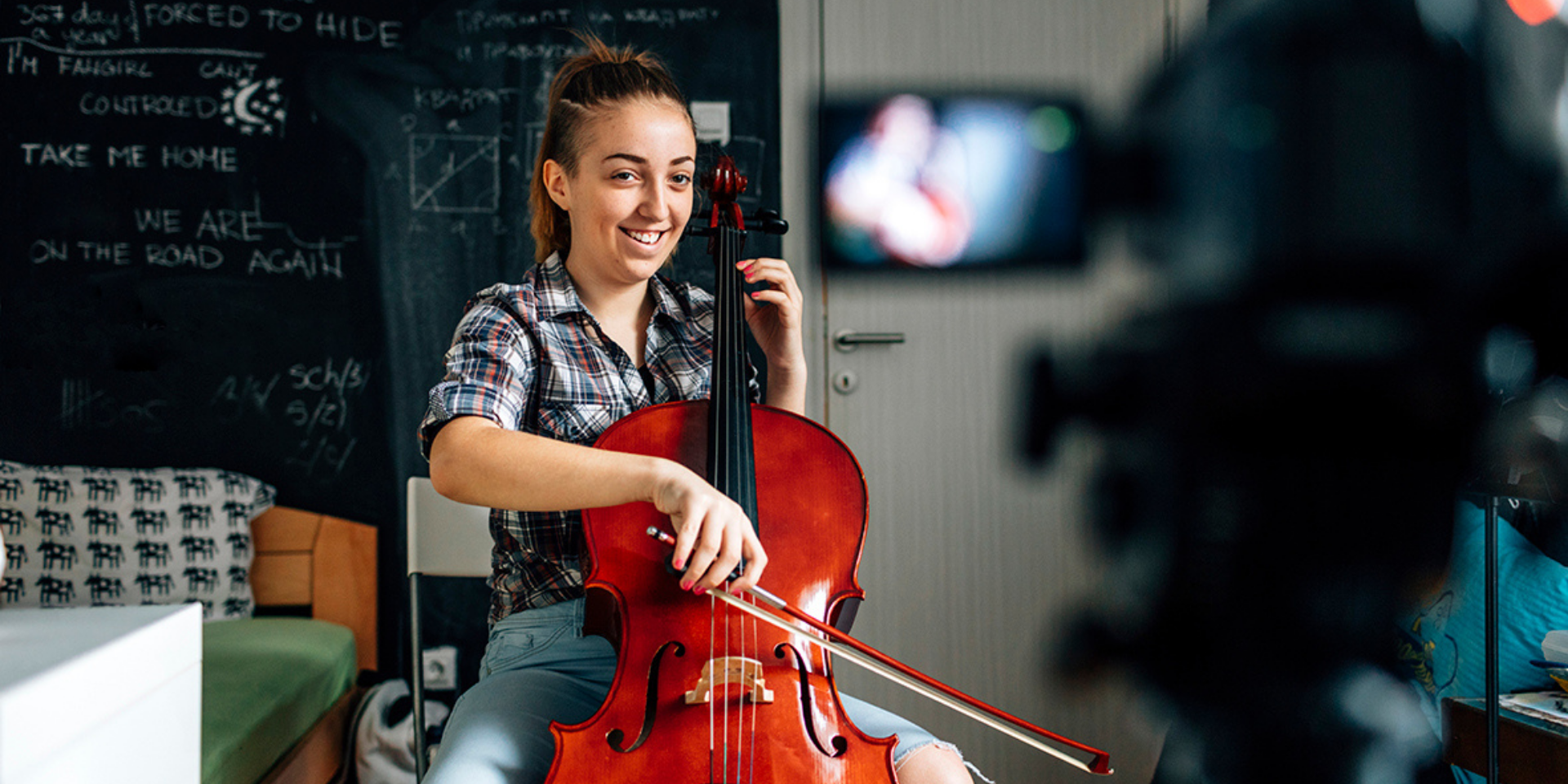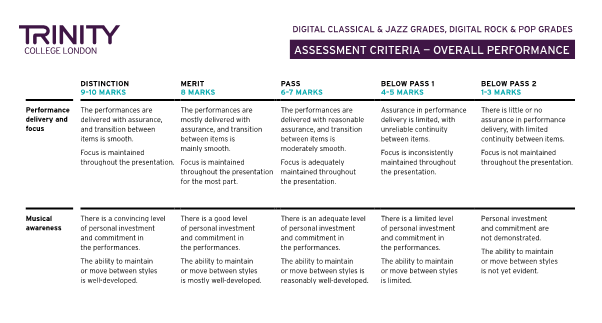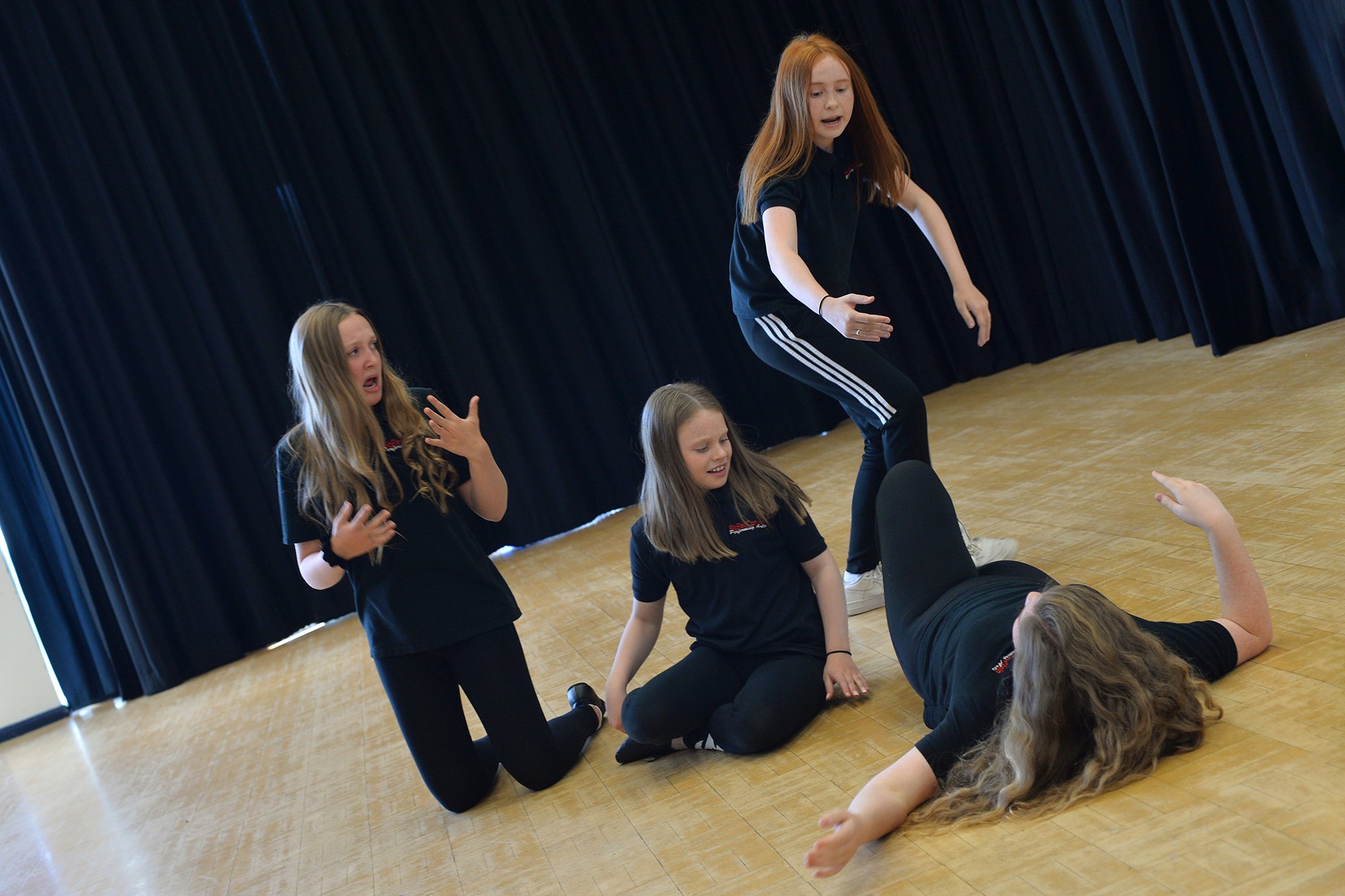
A student guide to the Overall Performance criteria of Digital Grades

BY: Jean McCreery
05 April 2021
Two of Trinity College London’s Classical and Jazz examiners - Jean McCreery and Rachel Kilby supply a unique perspective on the Overall Performance criteria for Trinity's Digital Grades, and what they are considering as examiners when marking a Digital Grade exam.
As you may already know, Trinity’s Digital Grade & Diploma exams are now a permanent option for students looking to take a graded music exam. They are available throughout the year and can be booked whenever you are ready. Remember, you don’t need to prepare anything new; just your pieces and, if applicable, the Technical Work that you have selected from the online lists. We have been excited to see all of the recorded performances you have been uploading so far and how well you have embraced this new approach.
However, there is a new area of assessment in a Digital Grade exam that you do need to consider, as things are a little different from the face-to-face exams that you might be used to. Here, we will explore the new Overall Performance criteria in Performance Delivery & Focus and Musical Awareness and how to consider this when putting together your submission video.
Director of Music for Trinity, Francesca Christmas provides an in-depth explanation of how the new criteria was developed and is scored in this article.
In place of the Supporting Tests for Classical and Jazz exams (Aural, Sight Reading, Musical Knowledge and Improvisation) and Session Skills for Rock & Pop exams (Playback and Improvising) you are now being marked on your overall performance. So, what does this mean in practice?
Think of your audience
As examiners, we are considering your whole performance from the very beginning to the very end of your video. When you are filming think of us, your audience, and make sure that you consider the following points:
- Consider the expectations of the audience; you aren’t playing to yourself, it’s still a performance, just that your audience isn’t in the room with you.
- Don’t do things that would distract from your performance; maintain your focus throughout.
- Take a moment to gather yourself before you start each piece; perhaps find the first notes or imagine the first bar in your head before you begin. This will help you maintain or move between styles convincingly.
- Remember to consider what you do between items matters and feeds into the overall performance. Don’t rush; the transition between pieces should be smooth, so be prepared. Have your music ready and your backing tracks cued up; a little moment of silence between pieces is fine and a good opportunity to compose yourself ready for the next one. Examiners don’t want to hear you turning your pages before the sound of the previous piece has faded.
- Our syllabuses have a wide range of musical genres and, if you choose to take advantage of this by picking pieces from a range of styles, you need to consider how you will communicate the musical style of your pieces and how you will move between different styles.
- You can have somebody else in the room with you to do the videoing and to operate your playback equipment if you need it. This may really help you keep your focus on your performance. They are also allowed to prompt you with your list of Technical Work if you are taking a Classical or Jazz exam, or you could have a list on your stand if you show it to the camera at the start of the video. This will all ensure a smooth and assured performance.
- It is a good idea to watch your film back to check the sound levels and that the whole performance is there. Remember, you are considering your performance as a whole and how you come across to your audience.
- You can do practice recordings and multiple takes before submitting your final video so spend time reviewing and critiquing them with your teacher before submitting. Take your time on this; you can wait and make your booking once you are happy and have your final recording ready to go. You can use our published assessment criteria for the Overall Performance to help you review them.

|
If you would like to hear more tips from Trinity examiners, please do check out this video on our YouTube channel.
Good luck with your filming and with your exam!
Related posts
BY: Sue Clarke: Subject Expert - Drama




Comments & Replies